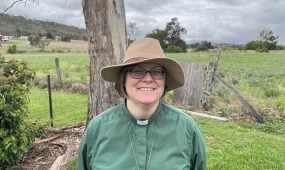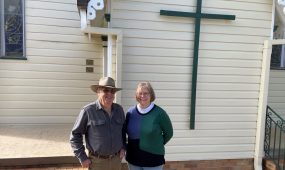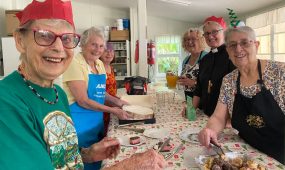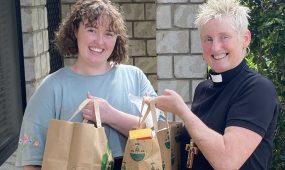The drought: what can the broader community do to help?
Bush Ministry Fund
Clergy, church representatives and parishioners on the ground share their insights into how parishioners out west have been impacted by the drought, and how the broader Diocesan community can assist.
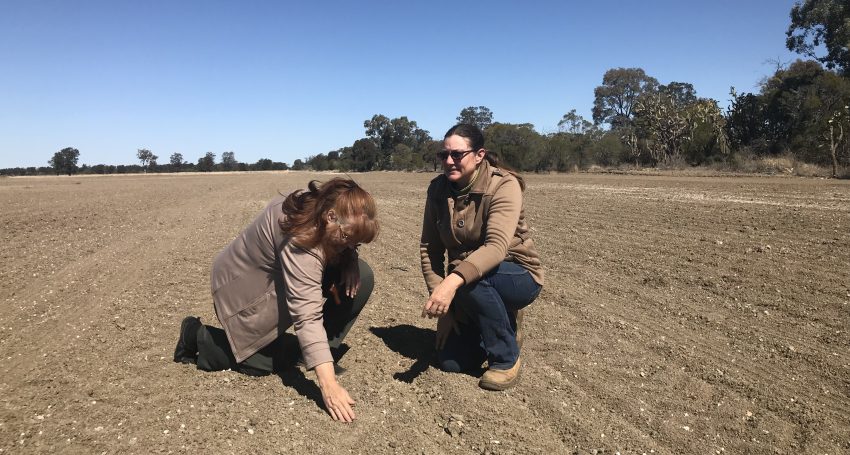
The Rev’d Terry Frewin, Priest-in-Charge of Leichhardt-Chinchilla Anglican Mission Area (LCAMA)
Here in LCAMA the drought is slowly deepening; conversations are about the need for rain. At a Community Prayer Gathering recently to pray for rain, there were heartfelt prayers reflecting the depths of anxiety the community is experiencing. Visiting a local grazier as we drove around her property the remaining cows and calves followed the vehicle with expectation longing for some fodder to sustain them. Looking into the eyes of the cattle, I saw what I can only describe as depression. All the while, the owner was talking to them reassuring them that the molasses would arrive the next day.
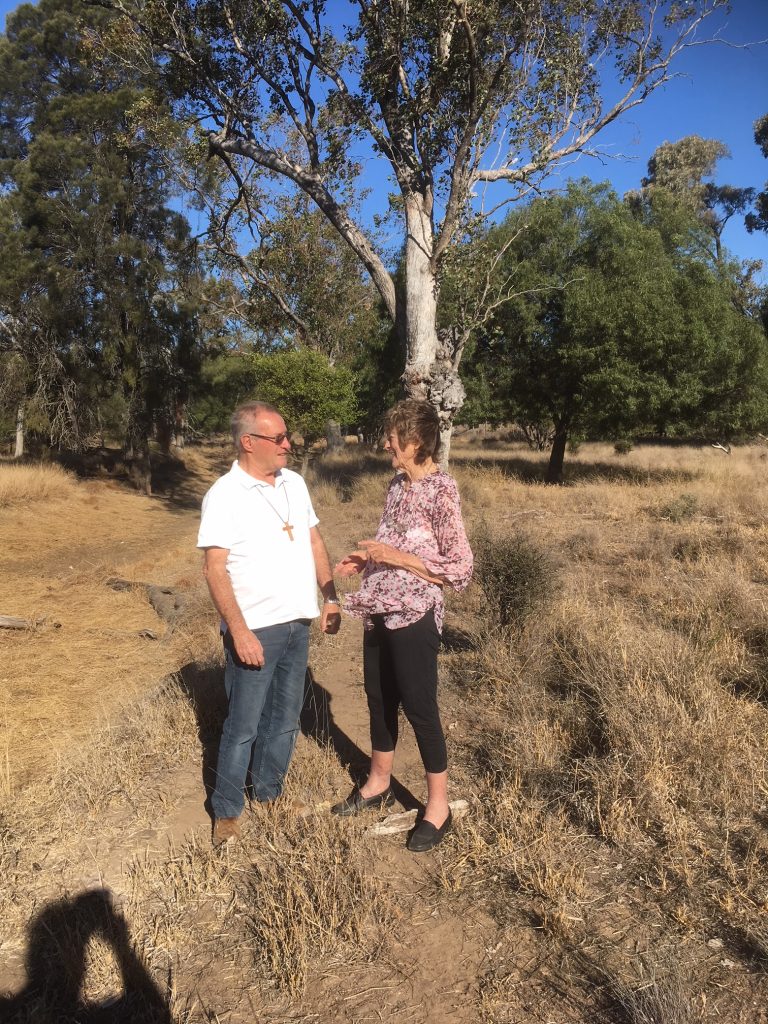
The Rev’d Terry Frewin with Chinchilla parishioner Shirley Gilligan on a dry gully on her property that is usually full of water: “When I asked Shirley what folk could do to help she was stoic, then mentioned simple things like face cream and needing to have a haircut and style”
The Rev’d Steffan van Munster, Priest-in-Charge of the Maranoa-Warrego Anglican Mission Area (Charleville, Cunnamulla and Mitchell), with input from across the mission area
We are very grateful for the money that comes in, as it takes the pressure off everyday living, such as affording groceries. Our farmers are resilient. These are not the first lean years they have been through and they will not be the last. However, it would be great if people throughout the Diocese could either bring money with them on a visit or at least let farmers know their contact details, so farmers can express their thanks and so relationships are created. People who live on the land are relational people and need our time and emotional understanding, as well as funds. Walk with the farmers and listen to them. Find out how the drought is affecting farmers in their region first hand.
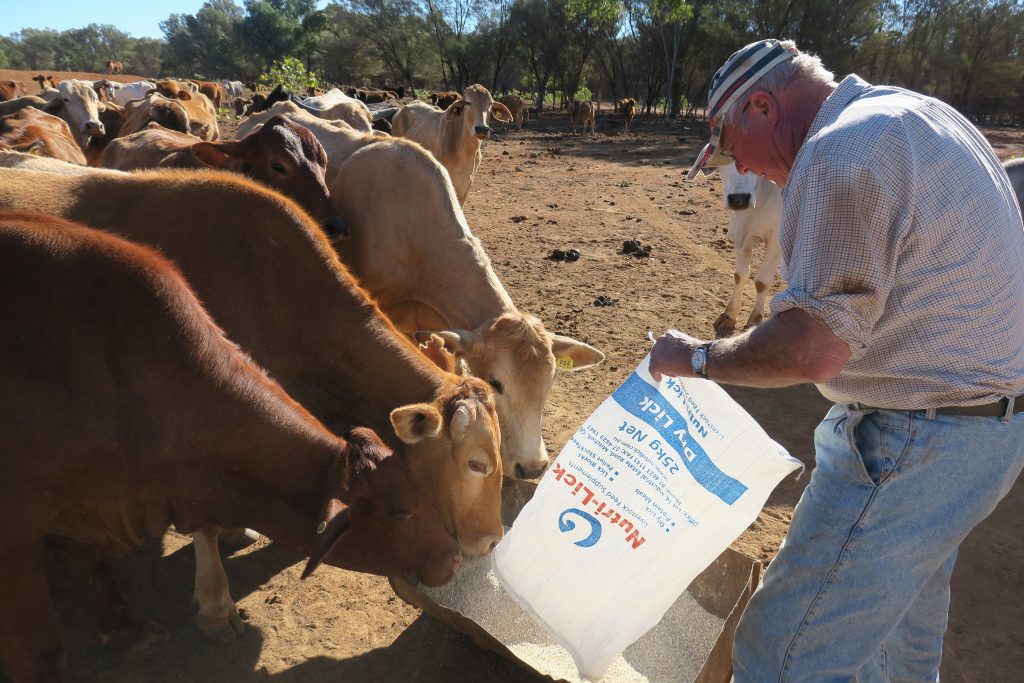
Walter McLean in August 2018, feeding ‘lick’ for cows – a dry mix of 27.5% salt and 15% urea, with the other components nearly unobtainable, resulting in six-week long supply delays
The Rev’d Kay Hart, Rector at Goondiwindi Parish
A common drought image is one of suffering stock, in dreadful skeletal condition. Whilst this is certainly true, Goondiwindi parishioner and grazier/farmer Alicia Stewart also wants us to be aware of the parched, empty paddocks. She says that the lack of crops is equally devastating – and not just to the farmer. Cropping employs many people, all of who lose their jobs in dry times. This causes a flow-on effect in the surrounding towns and we end up in a dreadful cycle. Alicia asks that we direct our prayers specifically for significant rain that will build up moisture deep in the soil.
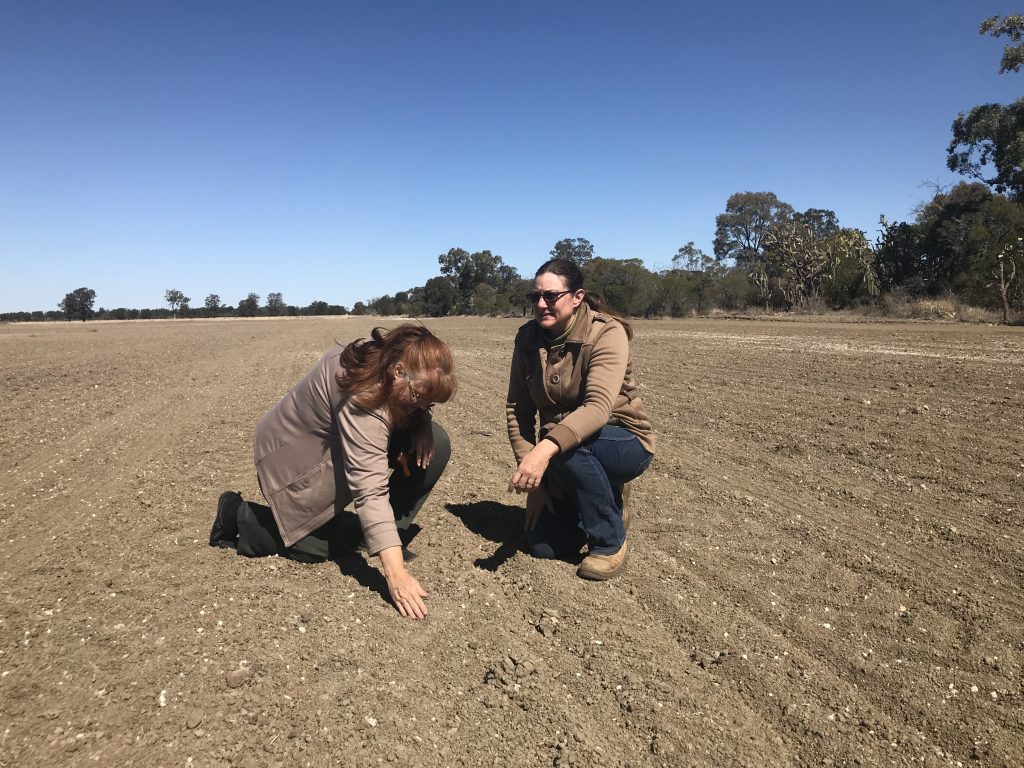
Parishioner Alicia Stewart (R) shows The Rev’d Kay Hart (L) an empty paddock that should be waist-high with wheat
Diane Massurit, Church Warden at the Parish of St George-Dirranbandi
Donations to assist farmers in the drought are very much appreciated; however, they could be redirected to give greater benefit. The effects of the drought are far reaching and impact the wider community. Money donated through the Church needs to be used in a way to lift the morale of the whole community by organising events to give respite from the drought. Unless sourced from the local retailers, food parcels and such take business away from the town.
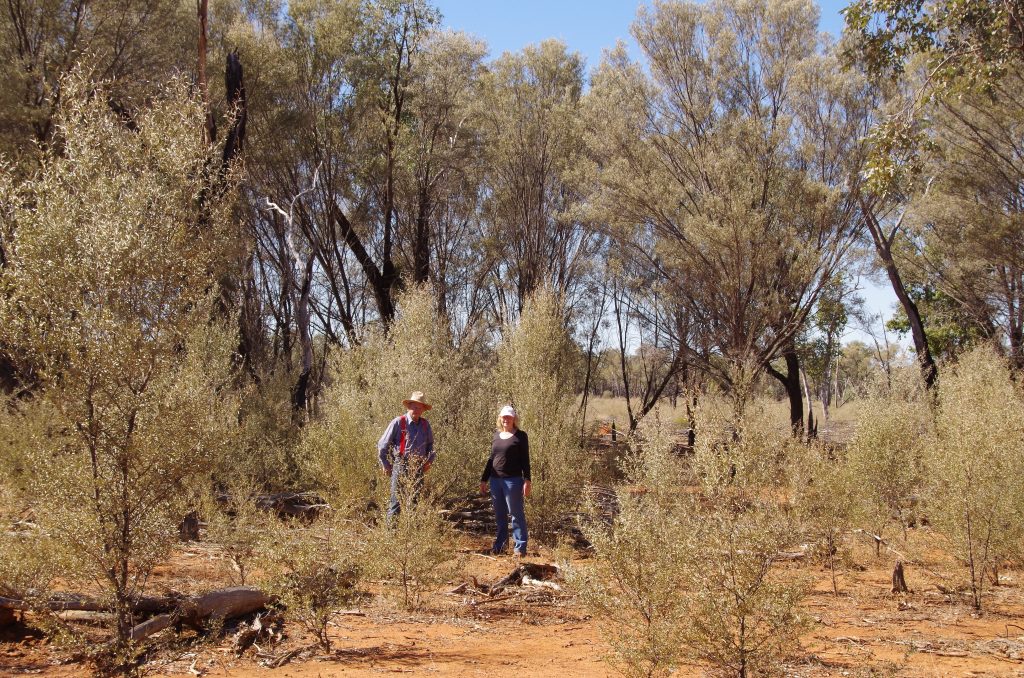
Diane and David Massurit at St George among Mulga trees
Lindy Sommerfield, Treasurer at Charleville Parish and Maranoa Warrego Anglican Mission Area (MWAMA)
Western parishes are receiving much appreciated emails and calls offering drought aid. The broader Diocese can support us by: continuing your prayerful support; purchasing vouchers from our local businesses for distribution to farmers; purchasing gift cards (Visa); including a note to the farmers when forwarding money/items, as the personal touch will be appreciated and many will want to thank you via an email or letter; targeting a small region and developing an ongoing relationship; avoiding sending goods unless requested, as our town businesses need us to buy locally; traveling west – there’s more to see than bare paddocks; and, acknowledging farming enterprises as essential small businesses by buying Australian products when possible.
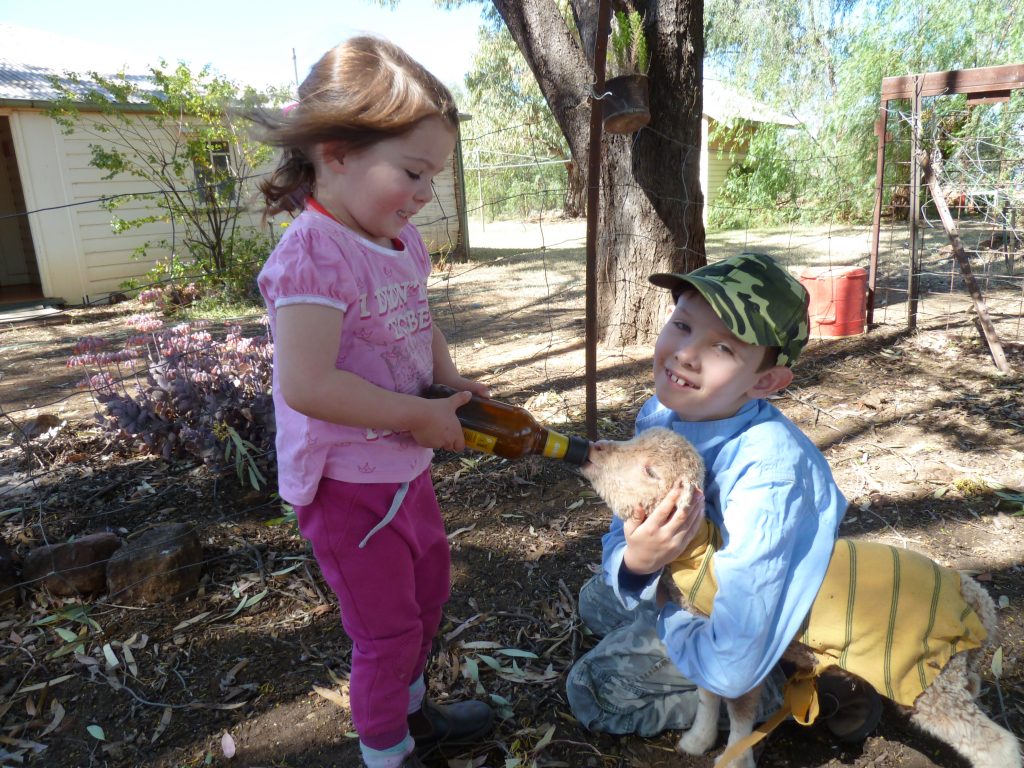
Hayden (7) and Zoe (3) McLean, grandchildren of Walter and Christine McLean, with orphaned lamb Lucy in August
2018 at Abbieglassie, between Mitchell and
Bollon, nine hours from Brisbane
Jennifer Crocker, Church Warden and Liturgical Assistant at Anglican Church Mitchell and Secretary of Maranoa-Warrego Anglican Mission Area
To me, it is important to say that the population of the West has decreased by 15% in 10 years. This means fewer people to fight fires, help at community working bees and help a neighbour. Farms that once employed help no longer do. We had two workmen last year. Now my husband and son keep things going with long hours, good organisation and much help from their wives. City people can best help by putting money into regional towns by coming to visit, as there is so much to see and do in the country and for city people to employ regional people, as there are a lot of jobs that can be done anywhere and there are a lot of highly qualified and educated people living on farms. It is also immensely helpful knowing that people care. During the drought in the 1990s when I had four young children, a church group from the Sunshine Coast visited us and held a concert when we were living in Central Queensland. They gave my family a hamper, which I then shared with a cousin from a neighbouring district who had five young children at the time.
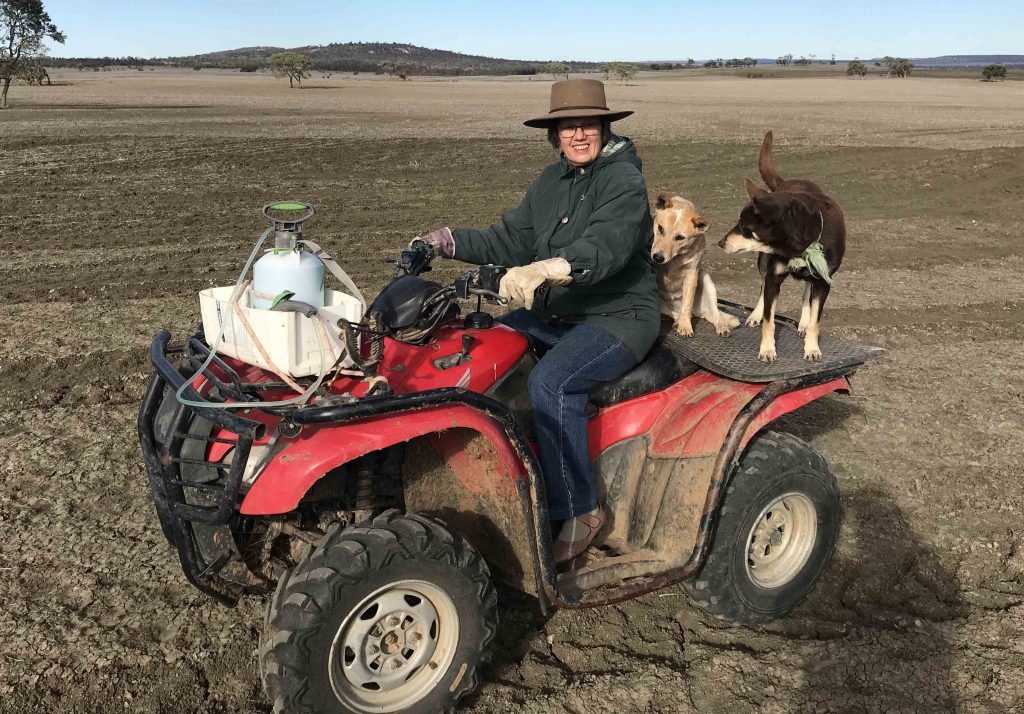
Jennifer Crocker with Stella and Cleo, who don’t miss an opportunity for a ride when Jennifer goes spraying Mexican Poppy and African Boxthorn in Muckadilla Creek
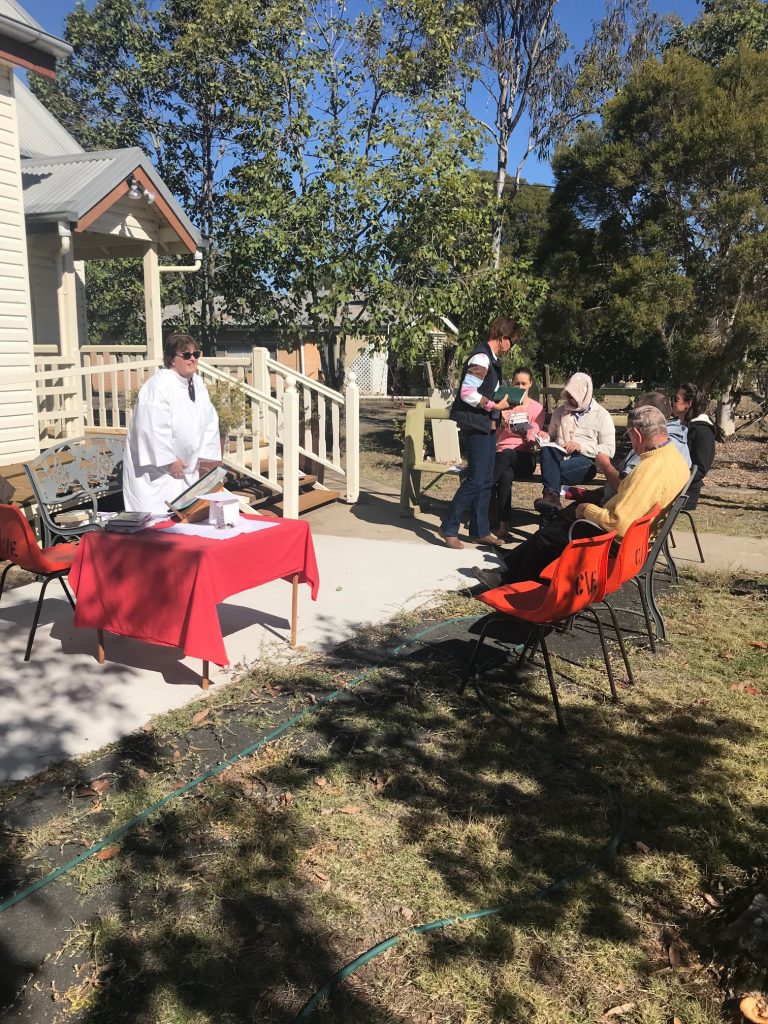
The Sunday congregation praying for rain at Church of the Annunciation, Yelarbon
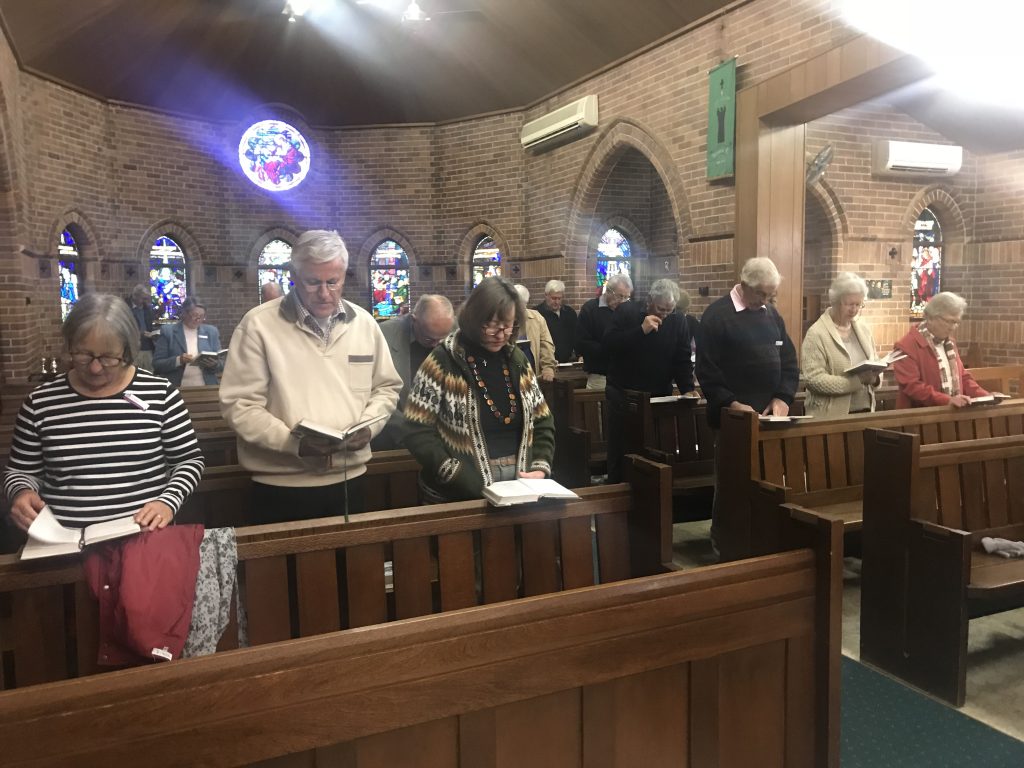
The Sunday congregation praying for rain at Holy Trinity Anglican Church, Goondiwindi.

